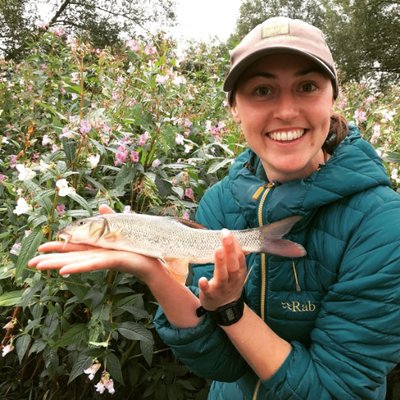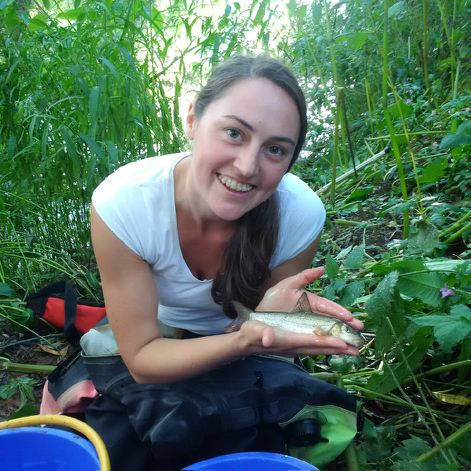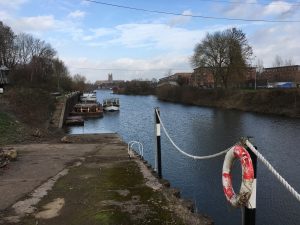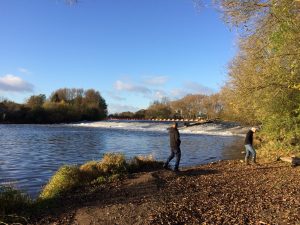
For British Science week, we caught up with Dr Catie Gutmann Roberts PhD, Postdoctoral researcher in Migration ecology, to find out about her research, her love of science and her self-confessed fondness for fish!
Catie’s scientific expertise
Catie is a freshwater fish ecologist, mainly looking at the interaction of freshwater fish and their environments and understanding how this affects aspects of their growth, diet, movement and reproduction.
What inspired her?
Whilst at school, Catie initially had her heart set on being a vet but after work experience she realised she didn’t want to be stuck in a consulting room but wanted to be outdoors much more. She also began to think about what other science-based roles could offer more variety. So she began a zoology degree, and immediately felt she was on the right lines for her. She became particularly interested in the marine modules, and so after graduating, went on to pursue an masters in aquatic ecology. Katie explains, “Learning about the threats to freshwater ecosystems during my masters and about how diverse freshwater fish were got me really inspired to find out as much as I could about them.”
Catie’s Research Findings
Catie has been researching a river fish, called barbel. These fish are very popular with fishermen and they are also indicators of good water quality in middle reaches of rivers.
“I found that fishermen catch fish with smaller home ranges and that those barbel have high amounts of fishmeal pellets in the diet. I also found that barbel create redds similar to equivalent sized salmon, and that there are multiple spawnings each year.”
Her research that has has had most relevance to practical conservation and Unlocking the Severn was demonstrating that barbel try to migrate upstream before spawning to get to the best spawning gravels and that weirs can present barriers to their movement: either completely blocking their movement or by delaying their migrations which could lead to them using more energy.
Why Science?
“I love the variety, I love being outdoors and I love communicating new and exciting research to those that can use it to inform management and conservation of our fabulous freshwaters.”
Catie’s advice for budding ecologists
“If science is your passion then try your hardest in subjects like biology, chemistry, physics, maths and geography. Spend your time learning about the things that you love, whether that be reading encyclopaedias, searching the internet or going to events such as the event I’m running to introduce local people to the ‘Fish on your doorstep’ in Worcester.”
CLICK to see more information about the event ‘Fish on Your Doorstep’ – family activities.
CLICK to see more information about the event ‘Fish on Your Doorstepp – the talk from researchers.
“Work experience is a great way to find out if it might be a career for you, so plan in advance; if your school doesn’t have a formal work experience program then don’t forget you could always get some great conservation experience during school holidays or volunteer some time at the weekends.”



